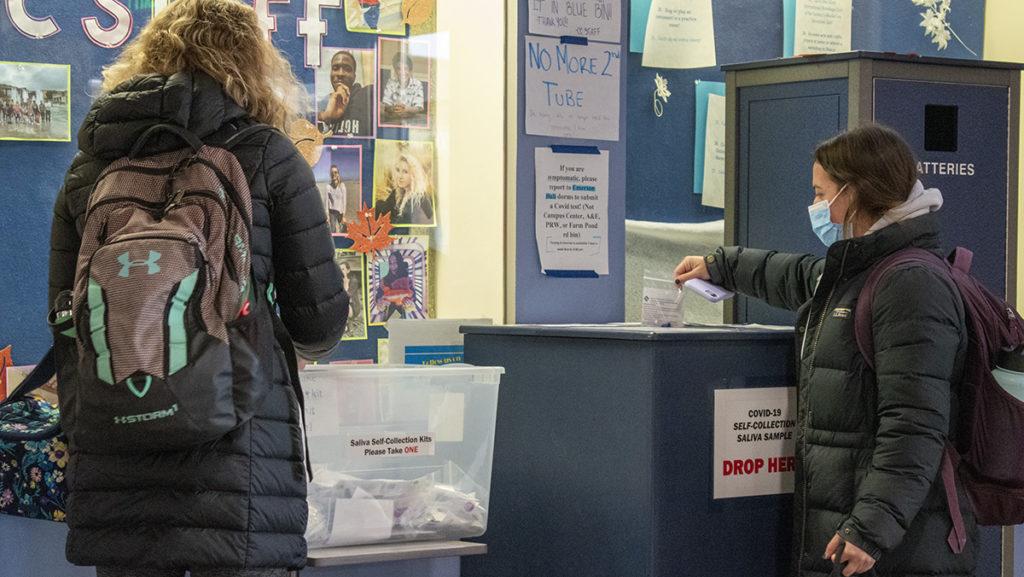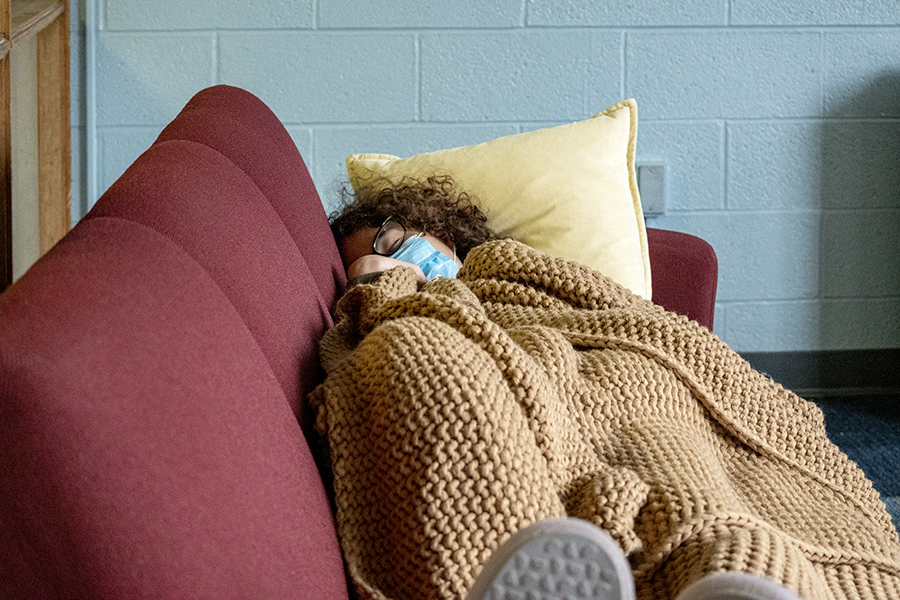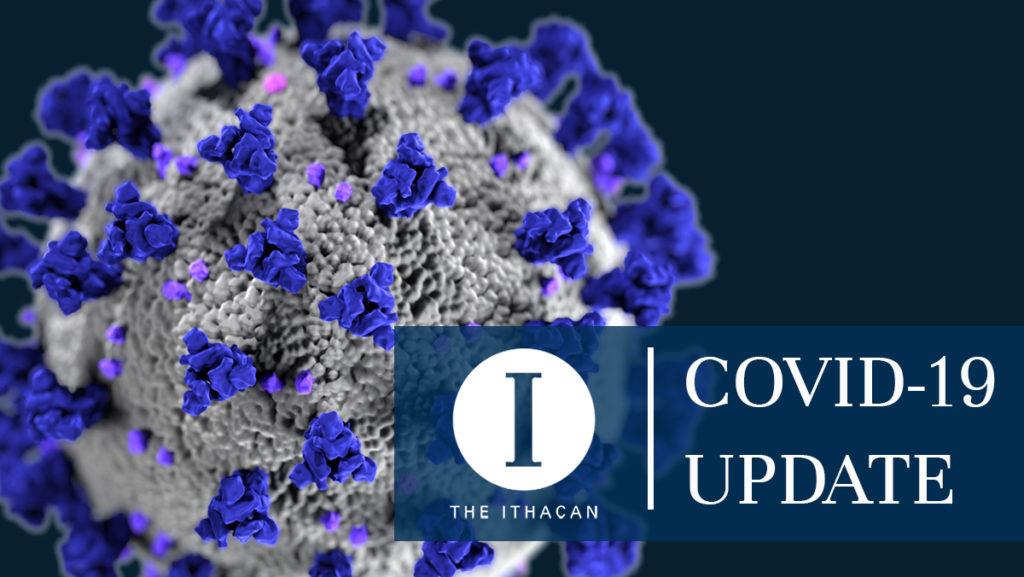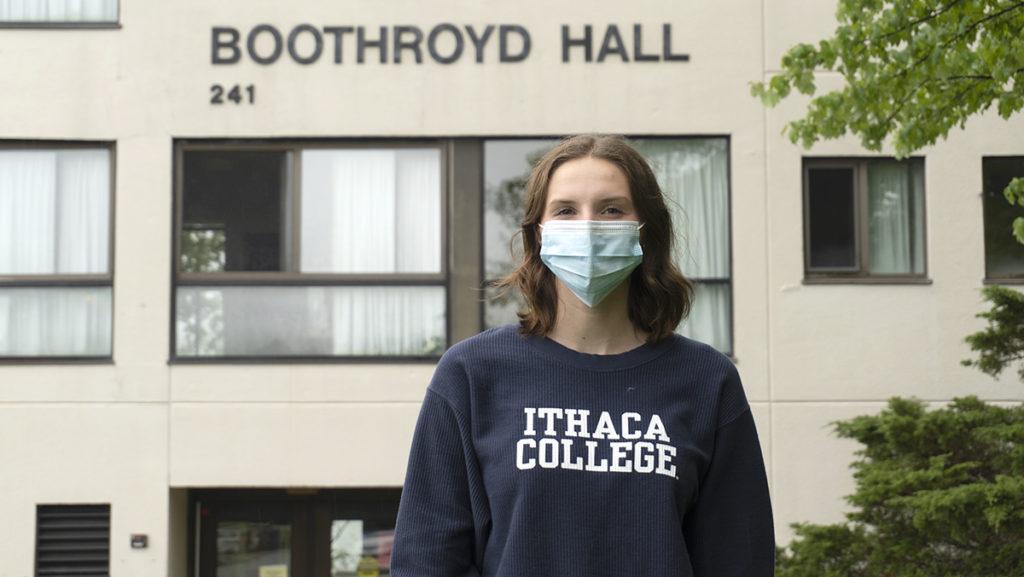Samm Swarts, assistant director for Emergency Preparedness and Response, and Kirra Franzese, associate vice president for Human Resources, sent an email to the campus community Nov. 10 about updates regarding COVID-19 booster shots.
The U.S. Food and Drug Administration (FDA) authorized a single booster shot for the Pfizer two-dose COVID-19 vaccine Sept. 22. The FDA expanded the booster shot authorization to the two-dose Moderna and single-dose Johnson & Johnson vaccines Oct. 20. Swarts and Franzese said in the email that students, faculty and staff who are eligible to receive a booster shot should do so as soon as possible in order to maintain a strong immune response.
“At the moment, the college is encouraging anyone who may be eligible to get a booster, [to] do so at their convenience,” Swarts said via email to The Ithacan. “We will not be offering booster vaccination clinics at this time on campus, and I would encourage anyone to use local resources within our Ithaca community to obtain vaccination boosters when eligible.”
People who received the Pfizer or Moderna vaccine can receive a booster shot at least six months after their second dose. Eligible individuals must be over 65 years old, ages 18–64 who live in long-term care facilities, ages 18–64 who have underlying medical conditions or people ages 18–64 who work or live in high-risk settings.
People who received the Johnson & Johnson vaccine can receive a booster shot at least two months after their dose and only have to be over 18 years old.
Swarts and Franzese also thanked the campus community for their work to keep COVID-19 numbers at the college low during the fall semester. Surveillance testing continues to be an important part of COVID-19 safety for the Ithaca College community and cases are few in number.
There are two active student cases, three active staff cases and three active employee cases as of Nov. 10. There is one person quarantining in Emerson Hall.
Swarts said in an interview that the student vaccination rate is 99% and the employee vaccination rate is 84%, which is an increase from the start of the semester when 78% of employees were vaccinated. He said the college started the optional, randomized surveillance testing because they received feedback from campus members requesting it. Unvaccinated students and employees are required to test weekly.
Freshman Jill Stafford said she thinks the COVID-19 safety protocols for testing are adequate because of the low number of cases on campus. She said if cases were to increase, then testing should also increase.
“I think [surveillance testing] is important to minimize COVID risk for everyone,” Stafford said via email. “I think if people are asked to do it a lot of the time they will, but there will always be some that may not if it’s not mandatory.”
Freshman Kierra Reese said she participates in the surveillance testing because she sees a lot of people everyday and wants to make sure she does not have COVID-19.
“It’s a good thing to do so the school knows how many tests are positive,” Reese said. “I feel like a lot of people that get the email might not take the test just because they are lazy and it took a few minutes out of the day.”
Swarts said at the start of Fall 2021 there was a supply shortage of antigen testing available at a national level due to a surge of COVID-19 cases across the country. He said the college worked with Abbott which is the production company that makes the Binax NOW rapid antigen tests. He said as soon as they were available, the college ordered several thousand test kits and began offering them to the campus community. He said the college has enough tests for the rest of Fall 2021 and campus members also have access to PCR testing through Cayuga Health.
To pick up an antigen test kit or drop one off, there are several locations across campus including the Campus Center Lobby, the Peggy Ryan Williams Lobby, the Athletics and Events Center Lobby and an employee-only location on Farm Pond Road. PCR tests and rapid tests are also available in Emerson Hall.
Swarts said the testing has allowed the college to be alerted of some potential asymptomatic infections, although he said there have been very few of those cases on campus. Swarts said each week 20% of the campus is selected for the randomized testing including students, faculty and staff. He said approximately 90% or more of that sample population participate in the randomized surveillance testing, and there have been very few positive cases.
“Overall, we are in a terrific place,” Swarts said via email. “Students have been taking health and safety precautions very seriously, and we have seen very low COVID numbers so far this semester. We continue to monitor our local and state guidance to see what we might be able to relax as we continue on throughout the pandemic.”












